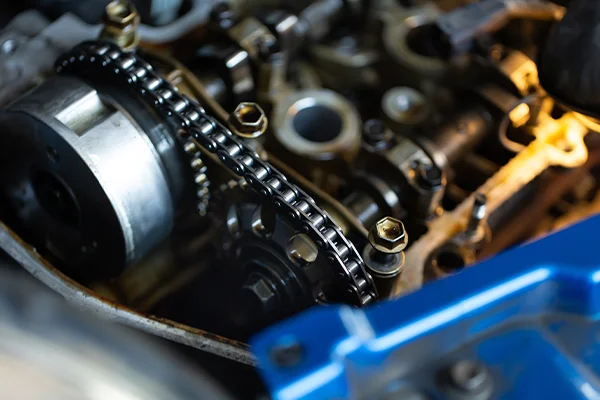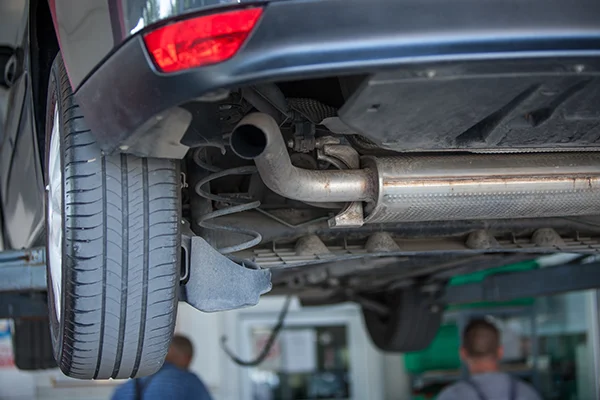Why Is My Engine Making a Ticking Noise?
Is your engine making a ticking noise? Understanding the potential sources of noise from your engine is important in helping you identifying if you have something to be concerned about. Some ticking noises are completely normal, but others can be of significant concern that require your immediate attention before catastrophic damage happens to your engine.
We are going to look at some of the common causes of engine ticking and what to do next.
What’s Normal?
It’s important to understand that engines are going to naturally produce certain sounds during normal operation. Fuel injectors create a subtle clicking noise as they rapidly open and close to deliver fuel into the combustion chamber. This sound is especially noticeable on modern direct injection engines that operate at much higher pressure than traditional low-pressure fuel pump systems.
You might also hear a ticking from the valve train coming from underneath your valve covers. This rhythmic sound typically stays consistent and will fluctuate with the increasing engine RPM.
The key is understanding normal operating sounds and problematic ticking sounds. Like most things it is best to be aware of changes in operation of your vehicle to determine if you should be concerned. Healthy engine sounds will remain consistent and won’t suddenly appear or worsen over time.
Common Causes of Engine Ticking
Low Oil Level of Poor Oil Quality
The most common cause of a ticking engine is from inadequate lubrication. If there is not enough oil, the wrong oil, or old and contaminated oil in your engine then there is not enough protection for the metal components within your engine. Oil provides a thin film between components allowing them to avoid damaging contact. Compromised oil, or insufficient amounts, will create a distinct ticking or tapping sound that often intensifies with higher RPM’s.
Using the wrong oil will also cause unusual sounds. Your engine is designed with specific oil requirements and using the wrong viscosity of oil will damage the internal components of your engine, shorten the its life and cause abnormal noises.
Beyond the sounds coming from your engine you might also notice oil pressure warning lights, smoke out of the exhaust, overheating, or sluggish engine performance. The first step if you notice this is to check your oil level. If the oil level is low immediately top off and see if the noise gets better. It is wise to have your oil and filter serviced in this instance.
Regular oil changes using the recommended oil type and viscosity are your best defense against lubrication related noises. If you have severe oil leaks that require regular top offs then it is best to have these addressed before you experience catastrophic engine failure. Neglecting preventative maintenance and oil leaks can result in costly damage. The cliché “an ounce of prevention is worth a pound of the cure” has never been more appropriate when applied to regular oil changes.
Worn Valve Lifters and Tappets
Valve lifters, also called tappets, are small components that help operate your engine’s valves. Over time and mileage, these parts wear down, creating small gaps that produce a characteristic ticking sound. This wear is accelerated by infrequent oil changes, as lifters depend on clean, pressurized oil to function properly.
Lifter tick is often most noticeable when the engine is cold, as thicker oil doesn’t flow as readily to lubricate these components. The sound may diminish as the engine warms up and oil circulation improves. However, if the ticking persists when warm, the lifters likely need replacement.
Certain modern GM and Hemi V8 engines are known to have premature lifter failure. If you have one of these vehicles and are hearing a ticking sound it is a good idea to bring it to a trained professional to determine if the lifters require replacement.
Worn lifters are particularly common in higher-mileage vehicles and can be prevented through consistent maintenance schedules and quality oil products.
Timing Chain issues
Your engine’s timing chain or belt synchronizes the rotation of the crankshaft and camshaft, ensuring valves open and close at precisely the right moments. When timing chains stretch and the links wear they can create a ticking or rattling noise, particularly during startup or at idle.
This is one situation where immediate professional attention is crucial. A failing timing chain can cause pistons to collide with valves, resulting in thousands of dollars in internal engine damage.
Timing chain issues often accompany other symptoms like check engine lights, rough idling, reduced power, or engine misfiring. The metallic rattling sound they produce is typically more pronounced than other types of ticking and may seem to come from the front of the engine.

Exhaust Leaks
Exhaust leaks, particularly around the exhaust manifolds, can produce a ticking sound that can be mistaken for an internal engine problem. This ticking sound typically varies with engine RPM as the pressure in the exhaust system increases. You may also heat it when cold and then when the metal in the exhaust system expands from heat it will temporarily seal up the leak.
You might notice the smell of exhaust or visible carbon on exhaust pipes if a leak is the source of your ticking sound. While not immediately catastrophic the biggest risk is exhaust fumes into the passenger compartment.

Engine Diagnostics & Repair in Austin, Texas
There can be multiple causes of ticking from your engine. The best advice we can give is to be aware of your vehicle and changes in sounds and smells. The longer you wait to fix potential issues the more expensive they can become.
If you are hearing any unusual ticking noises from your engine, don’t hesitate to reach out to the team at Edgestone Automotive in Austin, TX. We can assess your vehicle and provide recommendations that will help you get the most out of your vehicle and protect your investment.
